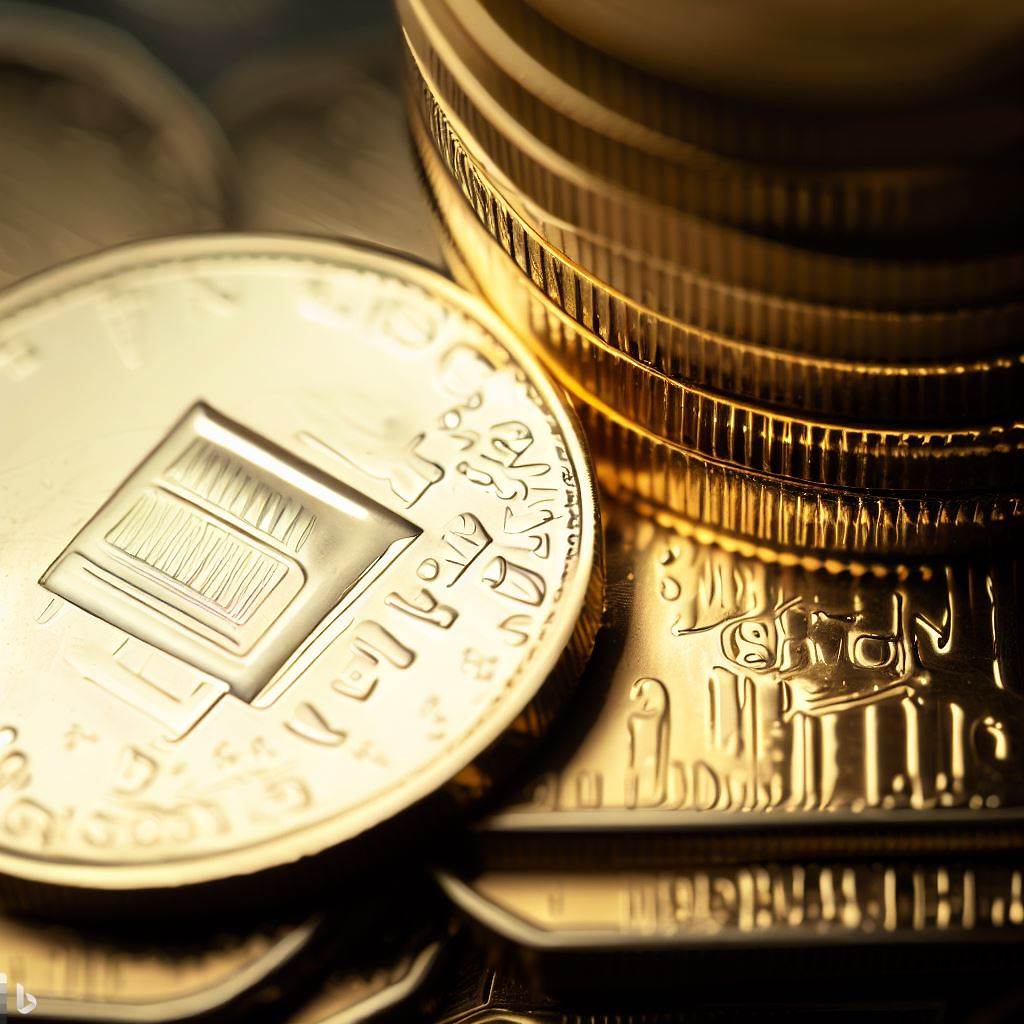Buying Bullion Coins vs Bullion Bars: A Guide for New Stackers
If you are interested in investing in physical precious metals, such as gold and silver, you may wonder whether you should buy bullion coins or bullion bars. Both options have their pros and cons, and the best choice for you may depend on your budget, preferences, and goals. In this article, we will compare the main features, benefits, and drawbacks of bullion coins and bullion bars, and help you decide which one is right for you.

What are Bullion Coins and Bullion Bars?
Bullion coins are round pieces of metal that are usually issued by government mints or authorized private mints. They have a face value that is often much lower than their intrinsic value, and they are mainly valued by their weight and purity of the metal they contain. Bullion coins can have various designs or historical significance, making them attractive to collectors as well as investors.
Bullion bars are rectangular pieces of metal that are usually produced by private mints or refineries. They have no face value and are solely valued by the weight and purity of the metal they contain. Bullion bars can be either cast or minted. Cast bars are made by pouring molten metal into a mold and letting it cool and solidify. Minted bars are made by stamping or striking metal blanks with weight and purity information.
Pros and Cons of Bullion Coins and Bullion Bars
Bullion coins and bullion bars both have advantages and disadvantages that you should consider before buying them. Here are some of the main factors to compare:
Premium
Premium is the amount you pay above the spot price of the metal when you buy bullion products. Premium can vary depending on the type, size, design, brand, and availability of the product. In general, bullion coins tend to have higher premiums than bullion bars, because they have more intricate designs, higher production costs, and higher demand from collectors. However, some rare or limited edition coins may have lower premiums than common or generic coins.
Liquidity
Liquidity is the ease with which you can sell your bullion products when you need to. Liquidity can depend on the recognition, popularity, and availability of the product in the market. In general, bullion coins tend to have higher liquidity than bullion bars, because they are more widely recognised and traded by dealers and investors. However, some obscure or exotic coins may have lower liquidity than well-known or standard bars.
Storage
Storage is the space and security you need to keep your bullion products safe and accessible. Storage can depend on the size, shape, and quantity of the product you own. In general, bullion bars tend to be more compact, stackable, and easy to store than bullion coins, because they have uniform shapes and sizes. However, some large or heavy bars may require more storage space than small or light coins.
Flexibility
Flexibility is the ability to diversify your portfolio or adjust your holdings according to your needs and preferences. Flexibility can depend on the denomination, variety, and divisibility of the product you own. In general, bullion coins tend to offer more flexibility than bullion bars, because they are available in smaller denominations, making them more affordable and accessible to a wider range of investors. They also offer more variety in terms of designs or themes, making them more appealing to different tastes or interests. However, some fractional or specialty coins may have higher premiums than standard or generic bars.
In summary
Bullion coins and bullion bars both have their pros and cons, and there is no definitive answer to which one is better for new stackers. The best choice for you may depend on your budget, preferences, and goals. You may also want to diversify your portfolio with both types of products to balance out their strengths and weaknesses.
Some general tips to follow when buying bullion products are:
- Buy from reputable dealers or mints that offer high-quality products at competitive prices.
- Do your research on the spot price, premium, liquidity, storage, flexibility, and other factors of the product you want to buy.
- Choose products that suit your needs and preferences, but also have good resale value in the market.
- Keep your products safe and secure in a suitable storage facility or location.
- Monitor the market trends and conditions regularly to know when to buy or sell your products.
Buying bullion coins or bullion bars can be a rewarding way to invest in physical precious metals and protect your wealth from inflation or economic uncertainty. We hope this article has helped you understand the difference between buying bullion coins vs bullion bars and make an informed decision for yourself. Happy stacking!
Disclaimer: This article is intended as an opinion piece and does not constitute financial advice. Investing in bullion carries risks, and individuals should conduct thorough research and consult with a qualified financial advisor before making any investment decisions.
Links for places to start investing now:
- https://bullionnow.com.au
- https://www.ainsliebullion.com.au
- https://www.abcbullion.com.au
- https://guardian-gold.com.au
Try our bullion tracker today and see the benefits for yourself!
Our bullion tracker is the easiest way to track the value of your precious metals holdings. It's fast, easy to use, and affordable.
Here are just a few of the benefits of using our bullion tracker:
- Stay organised: Keep track of all of your precious metals holdings in one place.
- Make informed decisions: Know the current value of your holdings so you can make better decisions about when to buy and sell.
- Save money: Avoid overpaying for precious metals by knowing the current market value.
Plus, we offer a free 30-day trial so you can try our bullion tracker risk-free.
Sign up today and start tracking the value of your precious metals holdings!
Start your free trial now: https://goldsilverstacker.com
